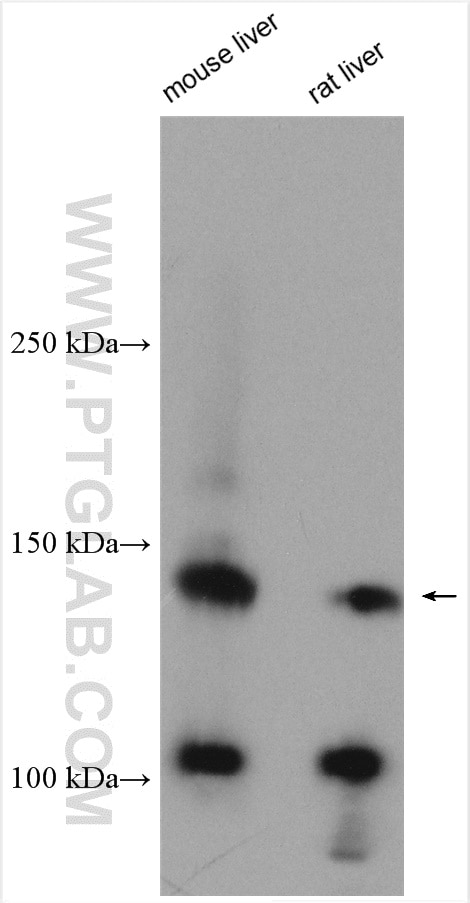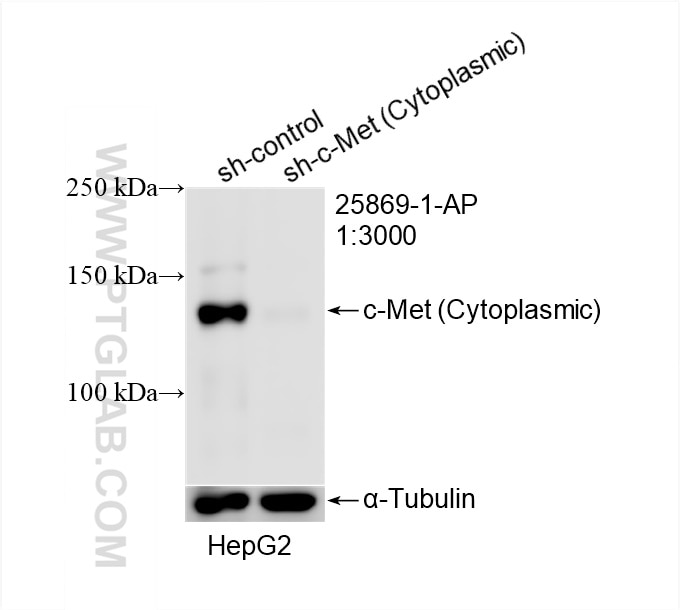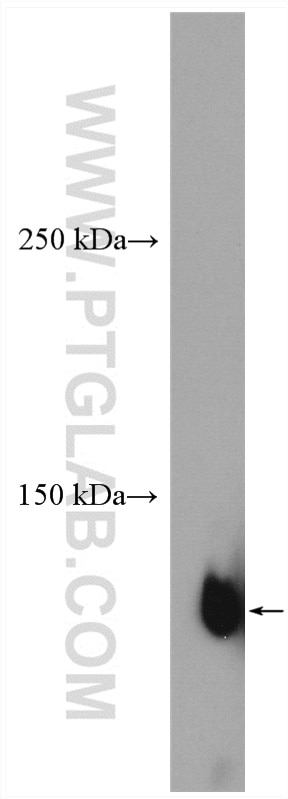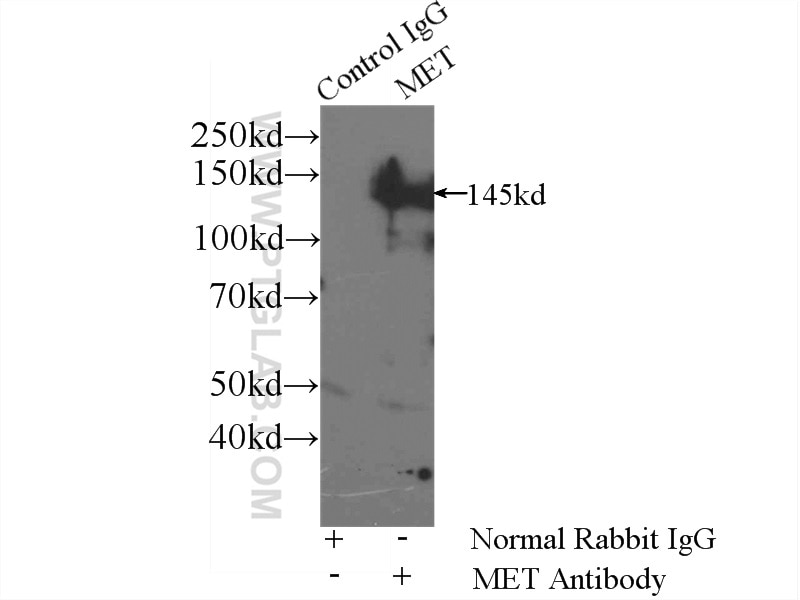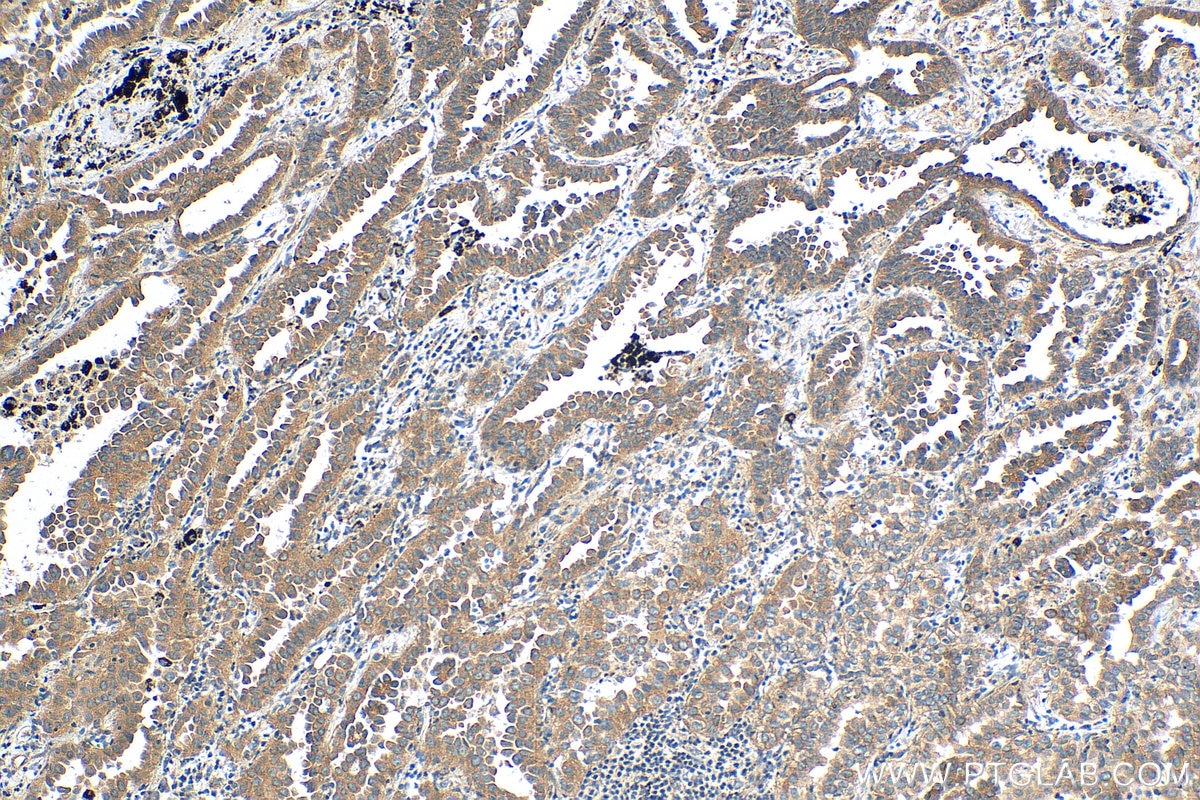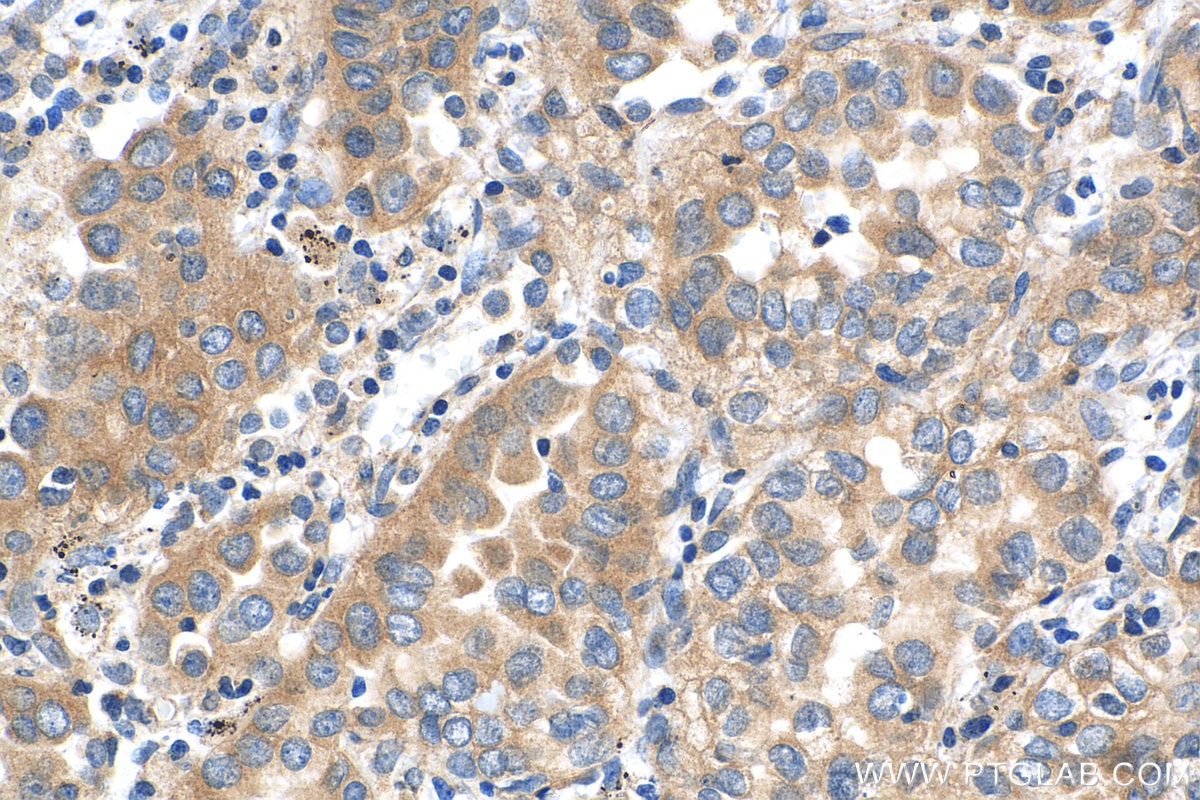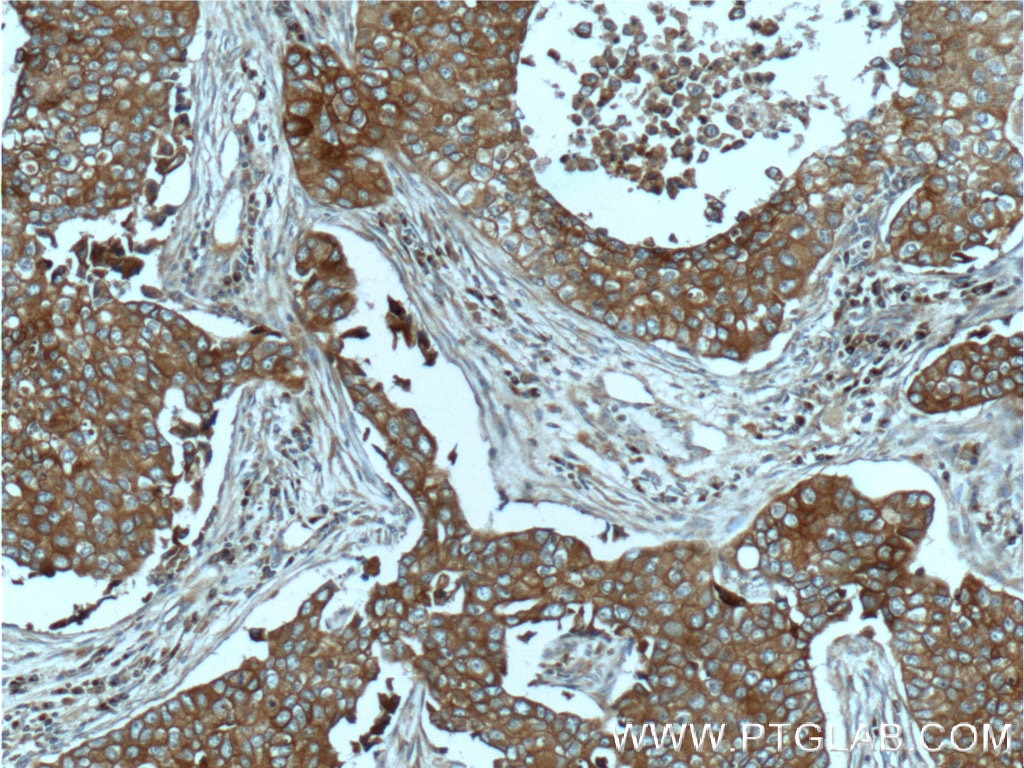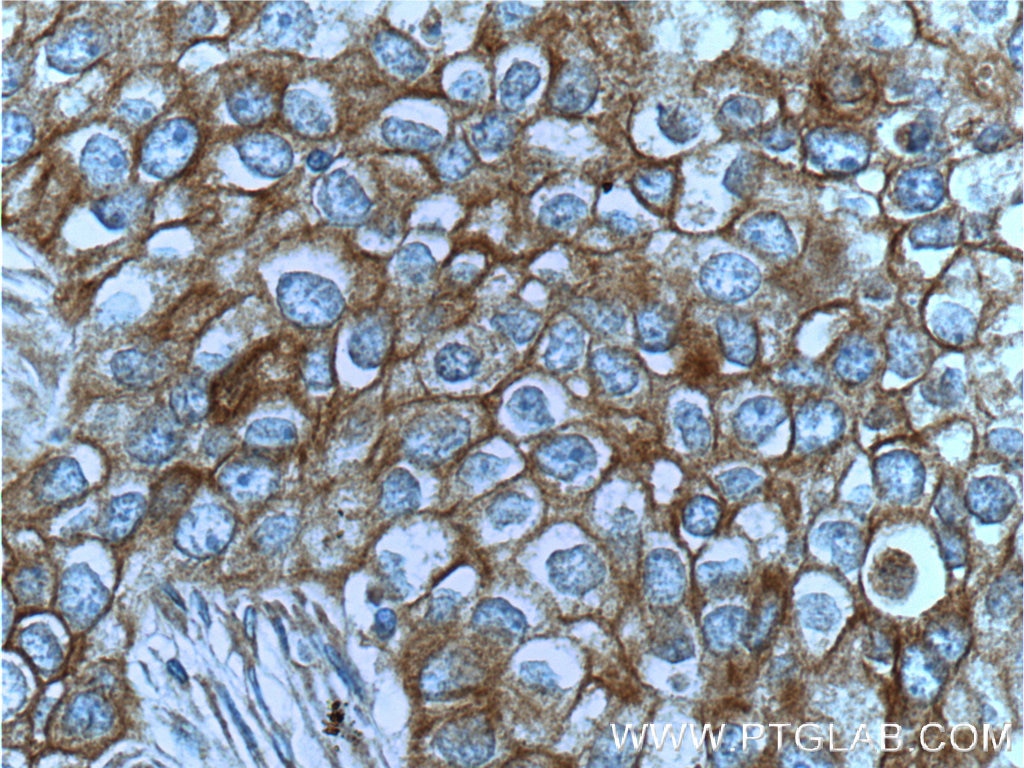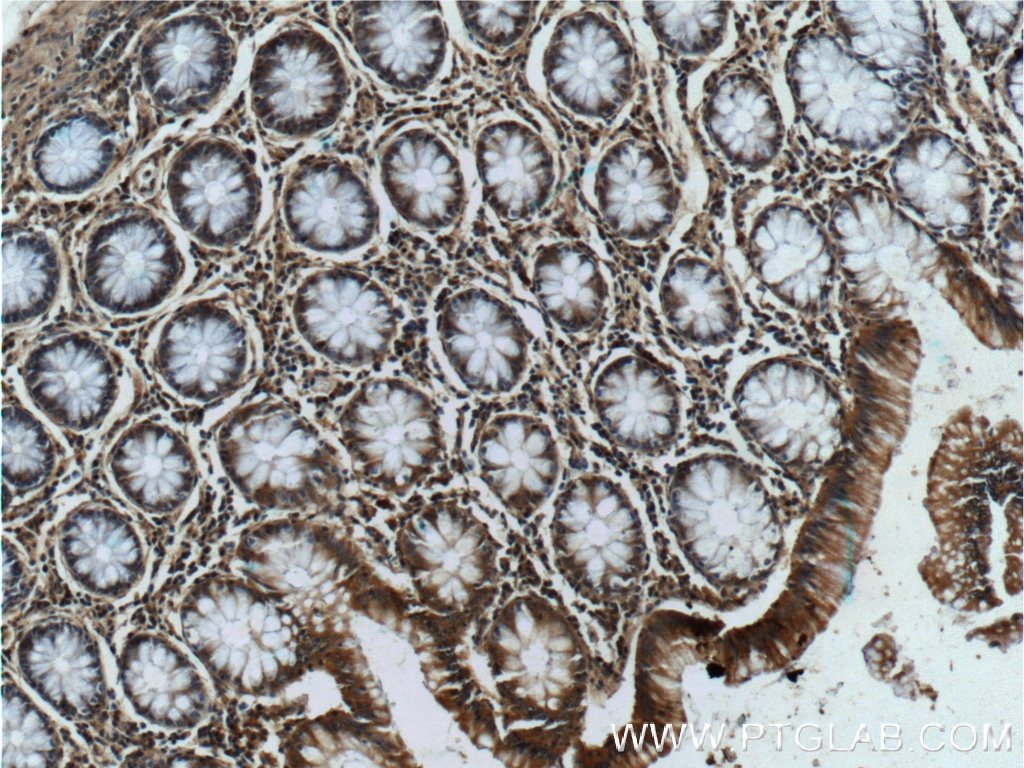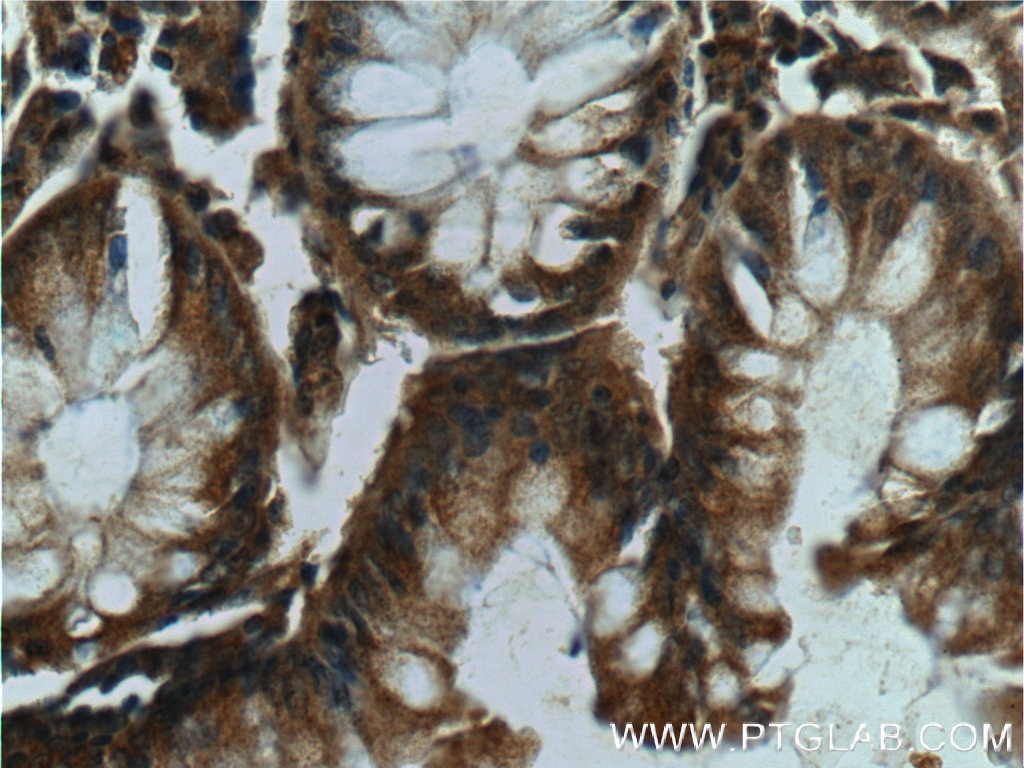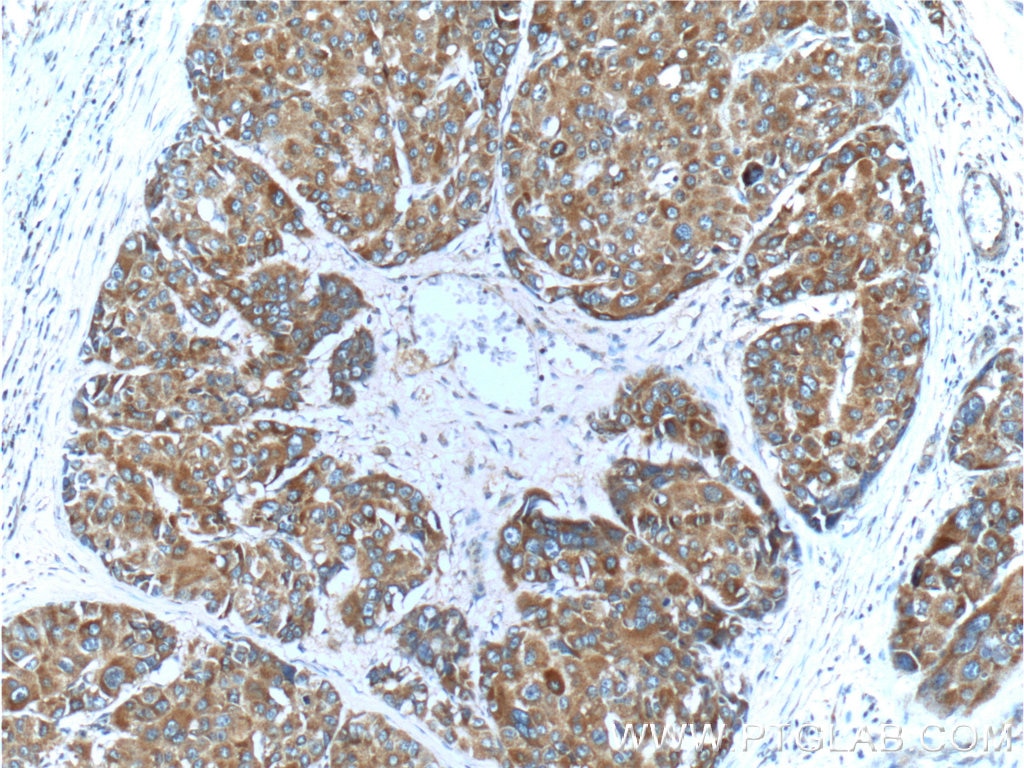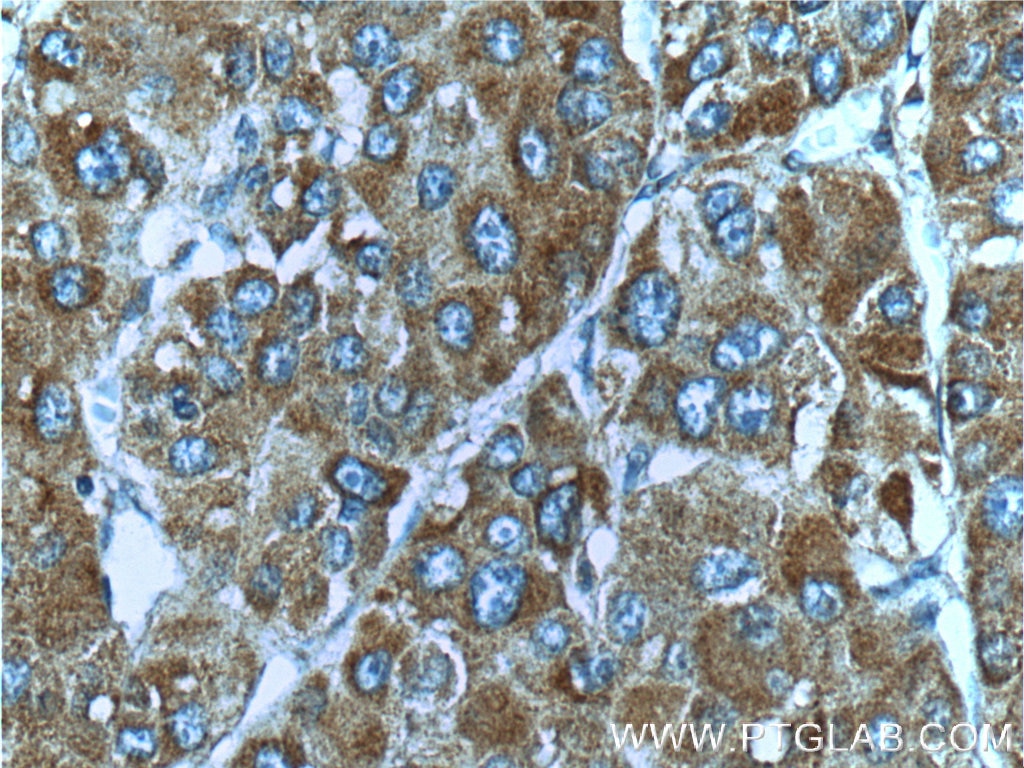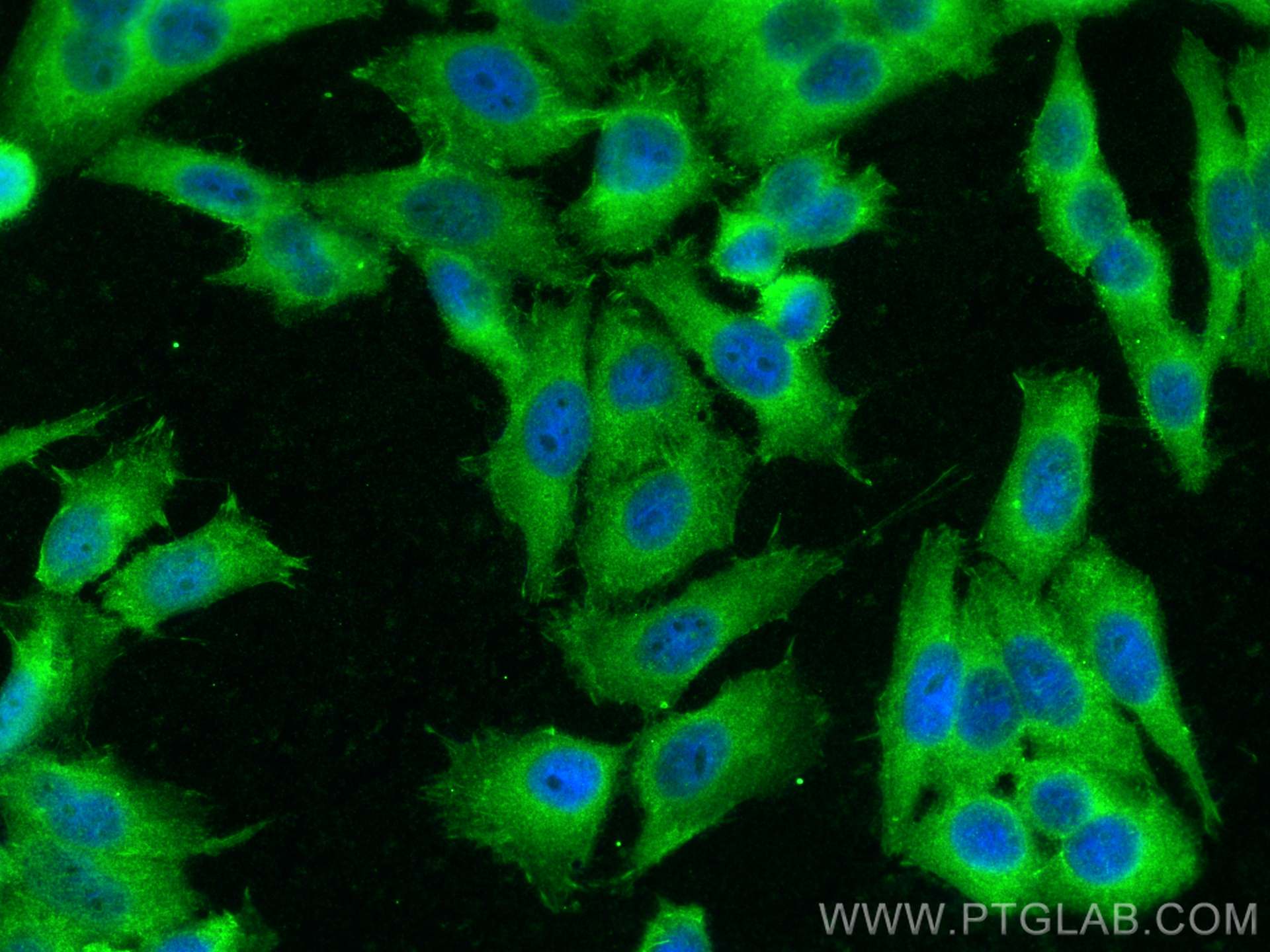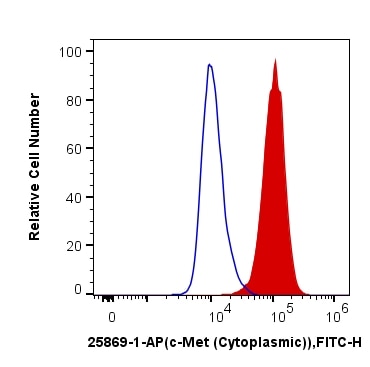- Featured Product
- KD/KO Validated
c-Met (Cytoplasmic) Polyklonaler Antikörper
c-Met (Cytoplasmic) Polyklonal Antikörper für WB, IHC, IF/ICC, FC (Intra), IP, ELISA
Wirt / Isotyp
Kaninchen / IgG
Getestete Reaktivität
human, Hund, Maus, Ratte
Anwendung
WB, IHC, IF/ICC, FC (Intra), IP, CoIP, RIP, ELISA
Konjugation
Unkonjugiert
Kat-Nr. : 25869-1-AP
Synonyme
Geprüfte Anwendungen
| Erfolgreiche Detektion in WB | Mauslebergewebe, HepG2-Zellen, MDCK-Zellen, Rattenlebergewebe |
| Erfolgreiche IP | HeLa-Zellen |
| Erfolgreiche Detektion in IHC | humanes Lungenkarzinomgewebe, humanes Mammakarzinomgewebe, humanes Kolongewebe, humanes Leberkarzinomgewebe Hinweis: Antigendemaskierung mit TE-Puffer pH 9,0 empfohlen. (*) Wahlweise kann die Antigendemaskierung auch mit Citratpuffer pH 6,0 erfolgen. |
| Erfolgreiche Detektion in IF/ICC | HepG2-Zellen |
| Erfolgreiche Detektion in FC (Intra) | HeLa-Zellen |
Empfohlene Verdünnung
| Anwendung | Verdünnung |
|---|---|
| Western Blot (WB) | WB : 1:200-1:1000 |
| Immunpräzipitation (IP) | IP : 0.5-4.0 ug for 1.0-3.0 mg of total protein lysate |
| Immunhistochemie (IHC) | IHC : 1:500-1:2000 |
| Immunfluoreszenz (IF)/ICC | IF/ICC : 1:50-1:500 |
| Durchflusszytometrie (FC) (INTRA) | FC (INTRA) : 0.40 ug per 10^6 cells in a 100 µl suspension |
| It is recommended that this reagent should be titrated in each testing system to obtain optimal results. | |
| Sample-dependent, check data in validation data gallery | |
Veröffentlichte Anwendungen
| KD/KO | See 9 publications below |
| WB | See 43 publications below |
| IHC | See 16 publications below |
| IF | See 4 publications below |
| IP | See 2 publications below |
| CoIP | See 1 publications below |
| RIP | See 1 publications below |
Produktinformation
25869-1-AP bindet in WB, IHC, IF/ICC, FC (Intra), IP, CoIP, RIP, ELISA c-Met (Cytoplasmic) und zeigt Reaktivität mit human, Hund, Maus, Ratten
| Getestete Reaktivität | human, Hund, Maus, Ratte |
| In Publikationen genannte Reaktivität | human, Maus, Ratte |
| Wirt / Isotyp | Kaninchen / IgG |
| Klonalität | Polyklonal |
| Typ | Antikörper |
| Immunogen | c-Met (Cytoplasmic) fusion protein Ag23140 |
| Vollständiger Name | met proto-oncogene (hepatocyte growth factor receptor) |
| Berechnetes Molekulargewicht | 1390 aa, 155 kDa |
| Beobachtetes Molekulargewicht | 145 kDa |
| GenBank-Zugangsnummer | BC130420 |
| Gene symbol | MET |
| Gene ID (NCBI) | 4233 |
| Konjugation | Unkonjugiert |
| Form | Liquid |
| Reinigungsmethode | Antigen-Affinitätsreinigung |
| Lagerungspuffer | PBS with 0.02% sodium azide and 50% glycerol |
| Lagerungsbedingungen | Bei -20°C lagern. Nach dem Versand ein Jahr lang stabil Aliquotieren ist bei -20oC Lagerung nicht notwendig. 20ul Größen enthalten 0,1% BSA. |
Hintergrundinformationen
c-Met (also named MET or HGFR) is a receptor tyrosine kinase that transduces signals from the extracellular matrix into the cytoplasm by binding to the HGF ligand. c-Met regulates many physiological processes including proliferation, scattering, morphogenesis, and survival. The primary single-chain precursor protein is post-translationally cleaved to produce the alpha and beta subunits, which are disulfide-linked to form the mature receptor. Overexpression and/or mutation of c-Met has been reported in various human malignancies, including lung cancer, breast cancer, head and neck cancer, gastric cancer, colorectal cancer, bladder cancer, uterine cervix carcinoma, esophageal carcinoma, c-Met could serve as an important therapeutic target (PMID: 26036285). The c-met receptor is a 190-kD glycoprotein consisting of a 145-kD membrane-spanning beta chain and a 50-kD alpha chain (PMID: 7806559). In Western blot, this antibody produces bands of unknown identity at 55 and 100 kDa.
Protokolle
| PRODUKTSPEZIFISCHE PROTOKOLLE | |
|---|---|
| WB protocol for c-Met (Cytoplasmic) antibody 25869-1-AP | Protokoll herunterladen |
| IHC protocol for c-Met (Cytoplasmic) antibody 25869-1-AP | Protokoll herunterladenl |
| IF protocol for c-Met (Cytoplasmic) antibody 25869-1-AP | Protokoll herunterladen |
| IP protocol for c-Met (Cytoplasmic) antibody 25869-1-AP | Protokoll herunterladen |
| STANDARD-PROTOKOLLE | |
|---|---|
| Klicken Sie hier, um unsere Standardprotokolle anzuzeigen |
Publikationen
| Species | Application | Title |
|---|---|---|
Nat Metab LIFR regulates cholesterol-driven bidirectional hepatocyte-neutrophil cross-talk to promote liver regeneration | ||
Acta Pharmacol Sin GPR97 deficiency ameliorates renal interstitial fibrosis in mouse hypertensive nephropathy | ||
Clin Transl Med Ursodesoxycholic acid alleviates liver fibrosis via proregeneration by activation of the ID1-WNT2/HGF signaling pathway. | ||
Mol Ther Nucleic Acids miRNA in food simultaneously controls animal viral disease and human tumorigenesis. | ||
Mol Ther Nucleic Acids Shrimp miR-34 from Shrimp Stress Response to Virus Infection Suppresses Tumorigenesis of Breast Cancer. |
Rezensionen
The reviews below have been submitted by verified Proteintech customers who received an incentive for providing their feedback.
FH Marius (Verified Customer) (09-30-2025) | Clear signal at 145 kDa. As depicted in datasheet second signal at around 100 kDa.
|
